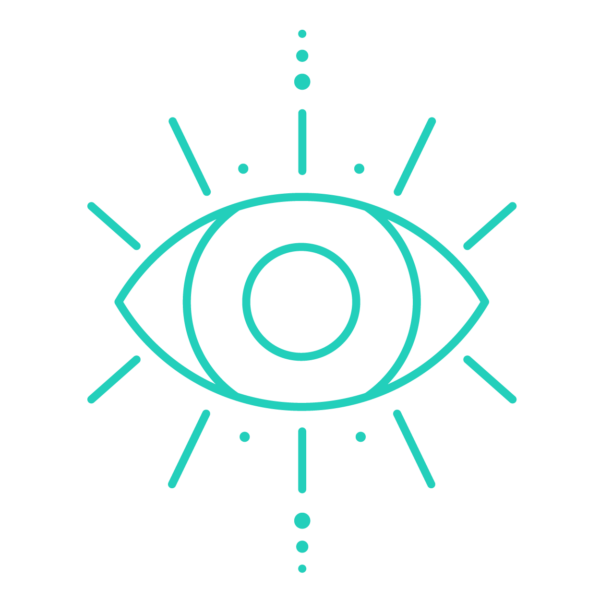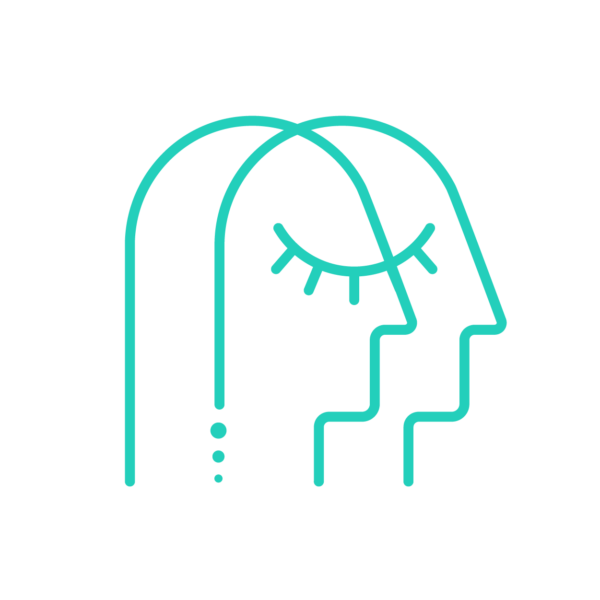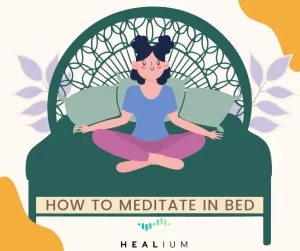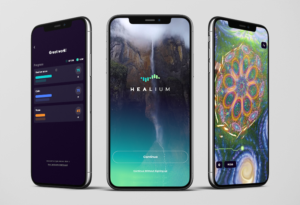




Meditation has been scientifically proven to deliver physical and mental health benefits, including improving focus, reducing stress, managing pain, lowering general blood pressure, and even improving sleep.
At Healium, we consider meditation a vital exercise in achieving mental fitness, meaning you should try to develop a meditation routine just like any other form of exercise. A study from Harvard shows that regular meditation helps you sleep better and wake up feeling more rested.
Our tip to developing a daily meditation practice? Begin by scheduling small mini-meditation sessions throughout the day whenever you feel the urge to relax your body and calm yourself in general.
While consistent meditation throughout the day is the goal (especially if it’s supplemented with neurofeedback training like Healium), more often than not people find themselves laying in bed at night wondering how to meditate to sleep right then and there.
In this blog we’ll walk you through the basics of how sleep meditation helps you wind down, what’s happening inside your brain as you drift away, and even teach you step by step how best to meditate in bed right before you fall asleep.
Meditation helps improve sleep conditions by adjusting brainwaves and alleviating internal stress and anxiety, which has been a well-documented strategy for those looking to gain quality rest.
In addition, sleep meditation brings about the following benefits, which may result in an easier time falling asleep (and deeper states of sleep in general).
– It relaxes the body and mind, making it easier to fall asleep.
– It trains the mind to focus on one thing at a time, creating a sense of inner peace that carries over into your sleep.
– People with insomnia often have racing thoughts or worries that keep them up at night. Meditation can help to clear the mind and ease these thoughts.
– The practice of meditation can help you become more aware of how you’re feeling, both physically and emotionally, leading to better sleep hygiene habits.
If you are looking for a way to get a good night’s sleep, consider trying meditation. At Healium, we offer guided sleep meditations in an immersive virtual reality format, all supplemented by neurofeedback training throughout the day. In other words, we provide you an active way to train your brain to sleep better!
Different parts of the brain control aspects of our sleep-wake cycle. From the hypothalamus to the amygdala, there’s virtually no part of your brain that actually shuts down when your eyes close and you drift off.
Sleep can be divided into several stages:
Wakefulness
Stage N1: Falling Asleep
Stage N2: Light Sleep
Stage N3: Deep Sleep or Slow Wave Sleep
Stage R: REM Sleep
Each stage of sleep is associated with different brainwave patterns visible on EEG sensors, meaning our brain activity differs between each stage. For example, during Stage N3 Deep Sleep, slow-moving delta waves are most active, suggesting the brain is resting and regenerating.
Want to learn more? We’ve written extensively about the neuroscience of sleep in our blog here.
The extensive overlap between sleep mechanisms and meditation make it easy to draw the conclusion that the two can be fundamentally connected. When you consider how active your brain is throughout the various stages of sleep, it makes perfect sense that a mental fitness habit like meditation improves it.

Step 1: Get comfortable! Whether you’re laying in bed or sitting up, find a comfortable position free of any and all distractions. You’ll want to be completely focused and within your own mind throughout your bedtime meditation session.
Step 2: Concentrate on your breathing at first, taking deep breaths, and then allowing yourself to settle into a natural rhythm.
Step 3: Instead of attempting to isolate yourself from the rest of the world, allow yourself to become aware of your surroundings, but only as an observer rather than as a participant in them.
Step 4: As thoughts begin to enter your head, let yourself acknowledge them and then allow them to pass by, separating yourself from the past and future and concentrating entirely on the present now.
Step 5: As you feel yourself becoming more mindful and relaxed, hold on to those feelings as long as you can. It may be tough to sustain this degree of concentration at first, but that is normal. The more you practice, the more quickly you will be able to go into a relaxed and present state, allowing your mind to stop racing and your body to naturally assist you in falling asleep once you have completed your session.
A mental fitness tool, Sleepium is a new, active meditation app driven by your brainwaves, designed to improve your mental fitness. Train your brain with real-time data so that you can better regulate your anxiety, concentrate more intensely, and sleep better at the same time.

Your brainwaves will be represented as a glowing orb we call the firefly, with an additional white line that represents your brainwave baseline. By providing you with actionable data on your brain, we give you the tools to practice neurofeedback at home and achieve better sleep!

Sleepium is designed for virtual reality headsets and utilizes neurofeedback, so you’re simultaneously immersed in the meditation experience while also capturing and training specific brainwaves associated with stress and anxiety.
We recommend you utilize the optional neurofeedback wearables throughout your meditation sessions during the day, while simply laying back and enjoying the meditation experiences without neurofeedback wearables in bed at night.
In addition to Sleepium sleep meditations, there are four additional meditation categories on Healium:
Focus – increase your attention span
Calm – lower your stress and anxiety levels
Mindfulness – be more present at the moment
Positivity – shift your mindset towards the glass half-full
No VR Headset? No problem! With a smartphone or tablet and the Healium app (compatible with iOS and Android devices) you can train your brain on the go.

Here are our favorite samples of virtual reality and augmented reality stories designed to ease you into a restful state in a VR headset for 360-degree views.
You can do a few other things to make the most of your meditation experience and get the best night’s sleep possible.
First, try not to eat or drink anything caffeinated at least four hours before bedtime. Caffeine is a stimulant that can keep you awake and make it harder to fall asleep.
Second, avoid drinking alcohol before bed. While it may make you feel drowsy, alcohol disrupts sleep and can lead to wakefulness later in the night.
Finally, create a relaxing environment in your bedroom that promotes sleep. This means keeping the room dark, quiet, and calm. Consider investing in blackout curtains or an eye mask to block light, using earplugs or a white noise machine to drown out the noise, and sleeping on a comfortable mattress and pillows.
With these tips in mind, you can create the perfect conditions for a restful meditation session before bedtime that will help you sleep better at night.
If you want to learn how to meditate in bed properly, the best way is to try Sleepium. Our app has a wide variety of guided meditation experiences to help you relax and fall asleep. We also offer real-time data to see how your brain is responding to the meditation and make adjustments accordingly.
{“@context”:”https://schema.org”,”@type”:”FAQPage”,”mainEntity”:[{“@type”:”Question”,”name”:”How to Meditate in Bed?”,”acceptedAnswer”:{“@type”:”Answer”,”text”:”Step one: get comfortable! Step two: Concentrate on your breathing, taking deep breaths. Step three: Allow yourself to become aware of your surroundings. Step four: Acknowledge thoughts and let them pass. Step five: Hold on to feelings of mindfulness and relaxation. “}},{“@type”:”Question”,”name”:”Does Meditating In Bed Help Sleep?”,”acceptedAnswer”:{“@type”:”Answer”,”text”:”Meditation helps improve sleep conditions by adjusting brainwaves and alleviating internal stress and anxiety, which has been a well-documented strategy for those looking to gain quality rest.”}},{“@type”:”Question”,”name”:”Should You Meditate Before Bed or in the Morning?”,”acceptedAnswer”:{“@type”:”Answer”,”text”:”This depends on what you’re trying to accomplish, as well as the type of meditation you are performing! There’s nothing wrong with practicing mindfulness meditation both at night and in the morning, but if your goal is better sleep it may be more beneficial to practice your meditation before bed to help your brain and nervous system down shift.”}},{“@type”:”Question”,”name”:”Is it Bad to Meditate in Bed?”,”acceptedAnswer”:{“@type”:”Answer”,”text”:”Absolutely not! One essential ingredient to a successful meditation experience is to find a comfortable position to lessen potential distractions. If that happens to mean laying down in your bed, then by all means go for it!”}},{“@type”:”Question”,”name”:”Can Meditation Interfere with Sleep?”,”acceptedAnswer”:{“@type”:”Answer”,”text”:”The answer to this will depend on the style of meditation you’re practicing, but generally speaking, no, meditations will not interfere with your sleep. In fact, studies suggest the lessened stress and anxiety resulting from meditation will actually contribute to better sleep overall. “}}]}
Sarah Hill, a former interactive TV news journalist at NBC, ABC, and CBS affiliates in Missouri, gained recognition for pioneering interactive news broadcasting using Google Hangouts. She is now the CEO of Healium, the world’s first biometrically powered VR/AR channel, helping those with stress, anxiety, insomnia, and other struggles through biofeedback storytelling. With patents, clinical validation, and over seven million views, she has reshaped the landscape of immersive media.